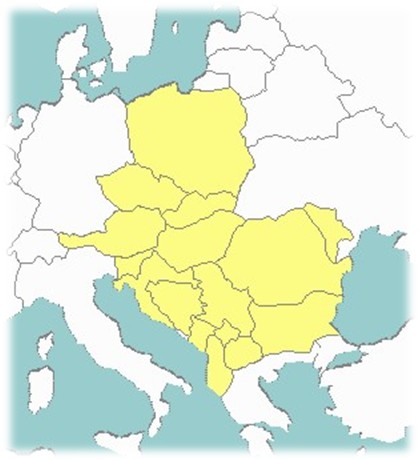









University of Zagreb, Croatia
Faculty of Mechanical Engineering and Naval Architecture
Department of Materials
Assoc. Prof. DSc Eng. Zdravko SHAUPERL
Short description, research and educational contributions
The Faculty of Mechanical Engineering and Naval Architecture (FMENA) at the University of Zagreb is the oldest and largest among related faculties in the country. Croatia. Ever since its first courses were taught at the Royal School of Engineering in 1919, the Faculty has excelled in keeping its study programmes up to date by means of a successful synthesis of general and specialized knowledge and expertise in four areas: construction, materials, production and organisation. Owing to the study programmes' structure and curricula, they are comparable to related programmes at renowned European universities, which makes the FMENA one of the leading technical faculties. The Faculty offers programmes at four levels: undergraduate, graduate and postgraduate programmes, as well as lifelong learning. Undergraduate programmes provide students with elementary knowledge of technology and expertise in mechanical engineering, naval architecture and aeronautical engineering. The suggested specialities for Bachelor are: Engineering Design, Process and Power Engineering, Production Engineering, Marine Engineering, Engineering Modelling and Computer Simulations, Computer Aided Engineering, Industrial Engineering and Management, Materials Engineering, Mechatronics and Robotics Naval Architecture, Aeronautical Engineering. The graduate programmes provide students with knowledge and skills needed for the development and implementation of new technologies. In the academic 2010/2011, there are about 2000 students studying at the Faculty at all three levels of studies, while the teaching and scientific activities are conducted within 13 departments.
Department for Material science is on of the largest and most active departments at Faculty. Wide scope of teaching and research activities are realized within 6 laboratories:
- Laboratory for tribology,
- Laboratory for mechanical testing,
- Laboratory for materiallography,
- Laboratory for non-metallic materials,
- Laboratory for chemical analysis
- Laboratory for heat treatment and surface engineering.
The research area is focused on tribology aspects of material science: tribological properties of materials and coatings; new materials for power plants; different methods of materials characterization; application of new light weight composites. Department workers are involved in many national and EU scientific projects which refer to: characterisation of tribology properties by materials microstructure; superior friction and wear control in engines and transmissions; control of friction and wear by use of appropriate materials, coatings and lubricants.
The teaching courses for Master and Doctoral studies related to current projects are: Material characterisation, Laboratory testing of materials, Composites, Material in naval architecture, Materials in aeronautics. Department of Materials will contribute to the CEEPUS project through investigation of the following research topics:
• Design and simulation of tribosystems;
• Heat treatment and surface engineering of metallic materials;
• Deep cryogenic treatment of tool steels;
• Tribological properties testing (abrasion, adhesion, erosion);
• Testing of lubrication properties by ferrography and four ball method;
• Application of material characterisation methods;
• Developing and testing of new lightweight materials (metal foams and sandwiches);
• Sol gel surface techniques;
• Developing, application and characterisation of ceramic layers.


Copyright © 2012-2015, UCTM CEEPUS Tribology
Participating institution - partner






